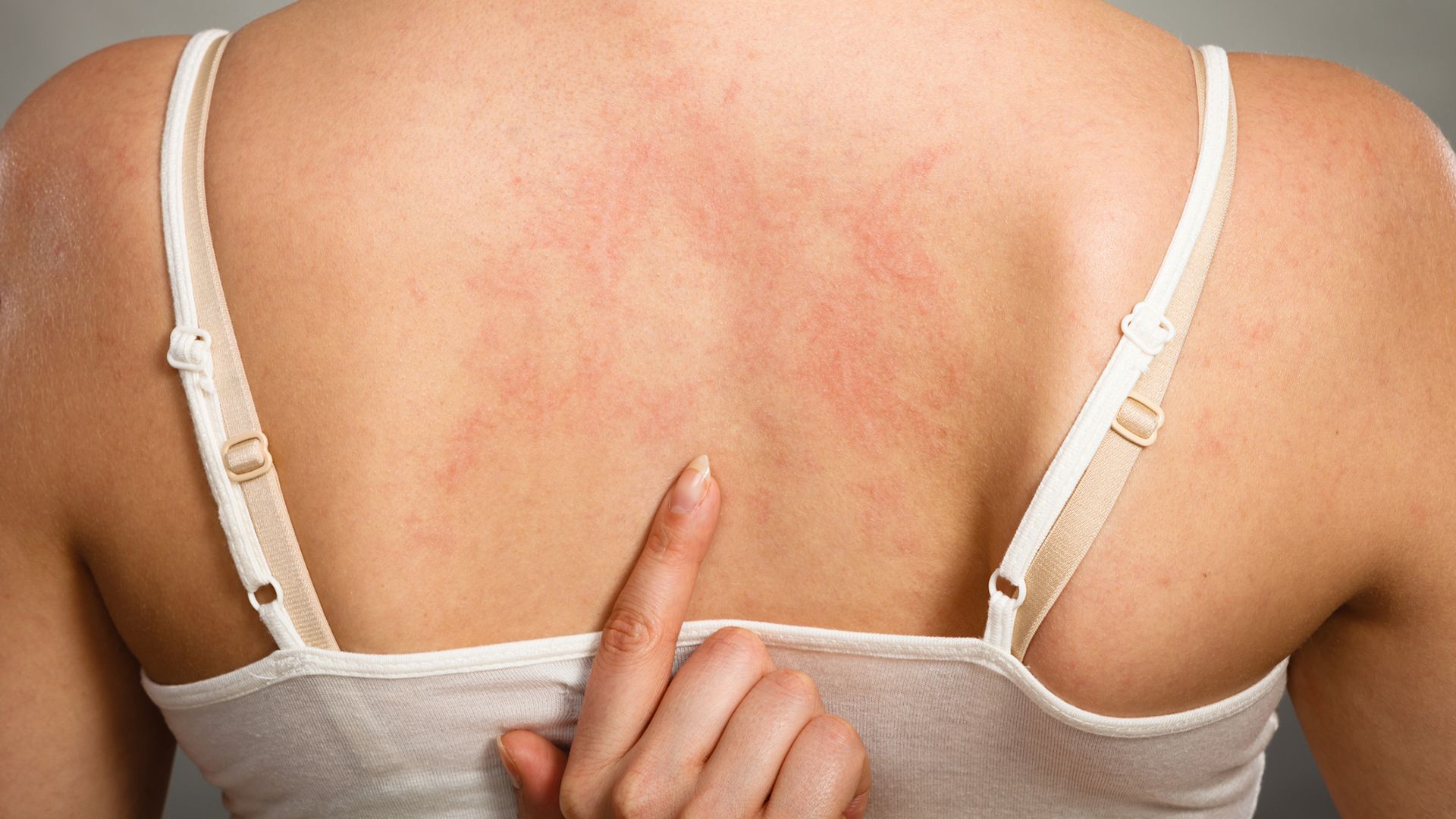Updated on October 23, 2024
When hives do not go away quickly, the first step in treatment is to consult an allergist.

Transcript
If you have chronic hives, you know how frustrating they can be. They're itchy. Sometimes, they burn and sting.
Sometimes, they're small. Sometimes, they're not. And ugh, it feels like they can just lasts forever. Luckily, there are doctors who specialize in treating issues
like chronic hives. They're called allergies, like me. And if you have chronic hives, you should see one.
[UPBEAT MUSIC] Your allergist will evaluate your hives. Asking you questions about your family's history.
Whether or not you're exposed to certain substances at work or at home. The foods you eat. Whether or not you've been around animals.
And any medications you take. In order to figure out what exactly is causing the hives. Of course, they'll ask you more than that,
but you get the idea. They need to do some investigation in order to get to the bottom of your condition.
GAREN WOLFF: Sometimes, the answer is simple. You eat a food you're allergic to, and you break out in hives. TANIA ELLIOTT: But in cases of chronic hives,
the answer is not always clear cut. In fact, in many cases of chronic hives, there is no identifiable trigger.
This is referred to as chronic idiopathic urticaria. Essentially, long lasting hives with an unknown cause.
Even if the cause of your hives is unknown, your allergist can help you find relief. There are plenty of medicines in the market today
that can help treat chronic hives. Available either over-the-counter or by prescription. So if you have chronic hives, consult an allergist.
Together, you can take steps to get your hives under control. [ELECTRONIC BEEPING]




